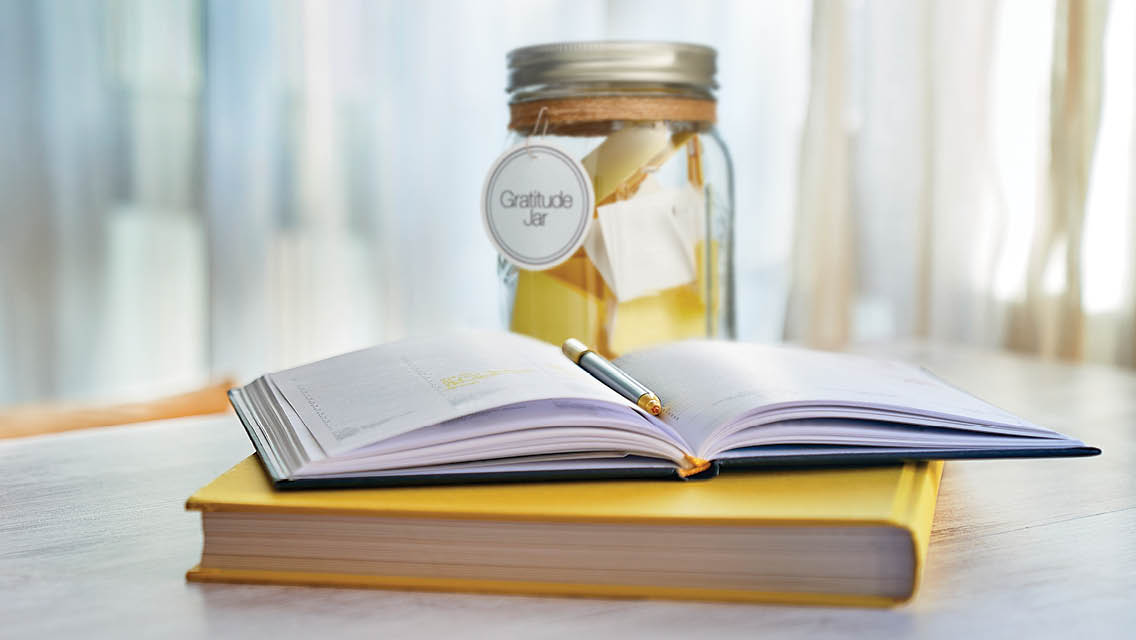To cultivate greater authenticity in your own experience of appreciation, Amie Gordon, PhD, a postdoctoral researcher who studies gratitude at the University of California at Berkeley, suggests the following:
1. Don’t overdose on gratitude exercises.
Gordon stresses quality over quantity. She points to studies that have found that it’s more helpful to write thoughtfully in a gratitude journal a few times a week rather than crank out a daily list, when it can start to feel like a chore. “Focus on quality,” Gordon advises, “and on finding the right expression — something that leaves you feeling good.”
2. Recognize your own efforts.
Gordon points out that people who suffer from low self-worth may refuse to recognize their own efforts and successes, and attribute them to other people instead.
“Recognizing how other people help us reach our goals is good for our well-being and relationships,” she says, “but if you find yourself attributing all of your successes to others and downplaying your own role, that may be a sign of low self-esteem.
“It’s important to acknowledge your own hard work, too,” she notes.
3. Give thanks where it’s due — and only where it’s due.
While it makes sense to be grateful for how difficult situations help us learn and grow, it isn’t healthy or helpful to be grateful to someone who isn’t treating you well.
Greeting a toxic work setting or damaging relationship with forced gratitude isn’t going to get you very far. “If you are in a relationship with an abusive partner, focusing on what you are grateful for — like the time he didn’t get mad at you when you thought he would — may encourage you to stay in an unhealthy situation,” Gordon says.
A more beneficial response to hurtful behavior is compassion, suggests Alex Wood, PhD, director of the Behavioural Science Centre at Scotland’s University of Stirling.
Focus on the fact that the harsh person’s suffering is making him behave badly, but know that showing him gratitude doesn’t serve either one of you.
4. Don’t use gratitude to avoid dealing with difficulty.
When your teenage daughter leaves her dishes in the sink for days, reflecting on all the things you love about her can be a good antidote to your irritation. But if you find she’s routinely telling you whopping lies, “looking on the bright side” for her redeeming qualities may not work to your advantage, or hers.
Gordon notes that focusing too exclusively on gratitude can lead us to delay addressing and resolving unproductive and unhealthy situations.
Focusing too exclusively on gratitude can lead us to delay addressing and resolving unproductive and unhealthy situations.
“Focusing on what we’re grateful for in our relationships and our lives can help us shrug off minor annoyances,” she says. “But when we face more serious issues, sometimes feelings like anger are needed to promote behavior change.”
5. Consider power dynamics.
When you show thanks to your boss, your mortgage lender, or another person who has decision-making power in your life, take care that your statements are authentic and not excessive.
In interactions where one person has more power, “gratitude might not be expressed in the same way or mean the same thing to both people,” says Gordon.
Research shows that powerful people feel less thankful when they receive help from others — in part because they are more likely to think someone is trying to get on their good side.
6. Know the difference between gratitude and indebtedness.
If we feel truly uncomfortable receiving a particular gift or offer of assistance, but find ourselves thanking the giver effusively anyway, this may be a sign that what we actually feel is indebtedness.
According to Gordon, feeling discomfort about receiving a gift or help can be another sign of low self-esteem, but it may also signal that something in the relationship is off balance.
Either way, Gordon says, if you feel an urge to repay a favor immediately, it may be a sign you don’t want a close relationship with the giver.
This was excerpted from “Real Thanks” which was published in the December 2014 issue of Experience Life magazine.





This Post Has 0 Comments